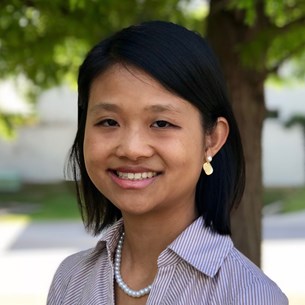Meeting
2023 ASCO Annual Meeting

US Food and Drug Administration, Silver Spring, MD
Elaine Chang , Jiaxi Zhou , Chi Song , Haley Gittleman , Laura L. Fernandes , Chana Weinstock , Michael B. Atkins , Sundeep Agrawal , Rajeshwari Sridhara , Nicole Gormley , Laleh Amiri-Kordestani , Shenghui Tang , Paul Kluetz , Daniel L. Suzman , Richard Pazdur , Brian I. Rini , David F. McDermott , Meredith M. Regan
Background: Treatment-free survival (TFS) with and without (w/o) toxicity are outcome measures that describe health states where patients are experiencing clinically stable disease while off anti-cancer treatment, a clinically meaningful attribute seen with some immune-oncology (IO) regimens. We sought to characterize TFS with and w/o ongoing toxicity in addition to time on protocol therapy (combination and monotherapy) in trials of frontline IO-VEGF tyrosine kinase inhibitor (TKI) combinations in pts with advanced renal cell carcinoma (aRCC). Methods: We pooled randomized trials submitted to FDA evaluating IO-TKI combination in treatment-naïve aRCC with at least 30 months (mos) of median follow-up. OS was partitioned into health states, including TFS, defined as area between Kaplan-Meier curves for 2 time-to-event endpoints originating at randomization: 1) time to all protocol therapy cessation and 2) time to subsequent systemic therapy initiation or death. Health state areas under the curve were estimated by 30-mo restricted mean times. We pooled data by treatment arm. Results: Three trials (KEYNOTE-426, JAVELIN Renal 100, CheckMate 9ER) met criteria for analysis; in total, 1183 pts received IO-TKI vs. 1184 on control arms receiving sunitinib (SUN). IO-TKI and SUN groups spent 9% (2.7 mos [95% confidence interval (CI): 1.8, 3.5]) and 10% (2.9 mos [95% CI: 2.1, 3.8]) of the 30-mo period alive and treatment-free. Mean TFS with grade ≥3 toxicity were 1 and 0.6 mos in the IO-TKI and SUN groups, respectively. Mean TFS w/o grade ≥3 toxicity were 1.7 and 2.3 mos in IO-TKI and SUN groups, respectively. In IO-TKI group, the 30-mo mean time on combination therapy was 13.7 mos (46% of 30-mo period) and 3.9 mos on monotherapy (13% of 30-mo period). Following cessation of one drug in IO-TKI arm, monotherapy duration of TKI was longer than IO: 2.9 and 1 mos, respectively. Conclusions: In this descriptive, exploratory analysis, TFS and TFS w/o toxicity were similar in IO-TKI group compared to SUN group, in contrast to improved TFS in IO-IO vs. SUN seen in published literature. Among pts on IO-TKI, more time was spent on TKI monotherapy than IO monotherapy. These findings may reflect continuation of TKI until progression per protocol design in all trials and discontinuation of IO after 2 years in 2 trials, and may inform individual pt choice of IO-IO vs. IO-TKI.
| IO-TKI (N=1183) | Sunitinib (N=1184) | |||
|---|---|---|---|---|
| Mean time (Months) | % of 30-mo period | Mean time (Months) | % of 30-mo period | |
| OS | 24.9 | 83 | 22.9 | 76 |
| Time to all protocol therapy cessation | 18.0 | 60 | 12.7 | 42 |
| Time on combination therapy | 13.7 | 46 | - | - |
| Time on monotherapy | 3.9 | 13 | - | - |
| Time on TKI monotherapy | 2.9 | 10 | - | - |
| Time on IO monotherapy | 1.0 | 3 | - | - |
| TFS | 2.7 | 9 | 2.9 | 10 |
| Survival after subsequent therapy initiation | 4.2 | 14 | 7.3 | 24 |
Disclaimer
This material on this page is ©2024 American Society of Clinical Oncology, all rights reserved. Licensing available upon request. For more information, please contact licensing@asco.org
2023 ASCO Annual Meeting
Publication Only
Publication Only: Care Delivery and Regulatory Policy
Care Delivery and Quality Care
Clinical Research Design
J Clin Oncol 41, 2023 (suppl 16; abstr e13602)
10.1200/JCO.2023.41.16_suppl.e13602
e13602
Abstract Disclosures
2024 ASCO Genitourinary Cancers Symposium
First Author: Elaine Chang
2023 ASCO Annual Meeting
First Author: Elaine Chang
2023 ASCO Annual Meeting
First Author: Giacomo Nuvola